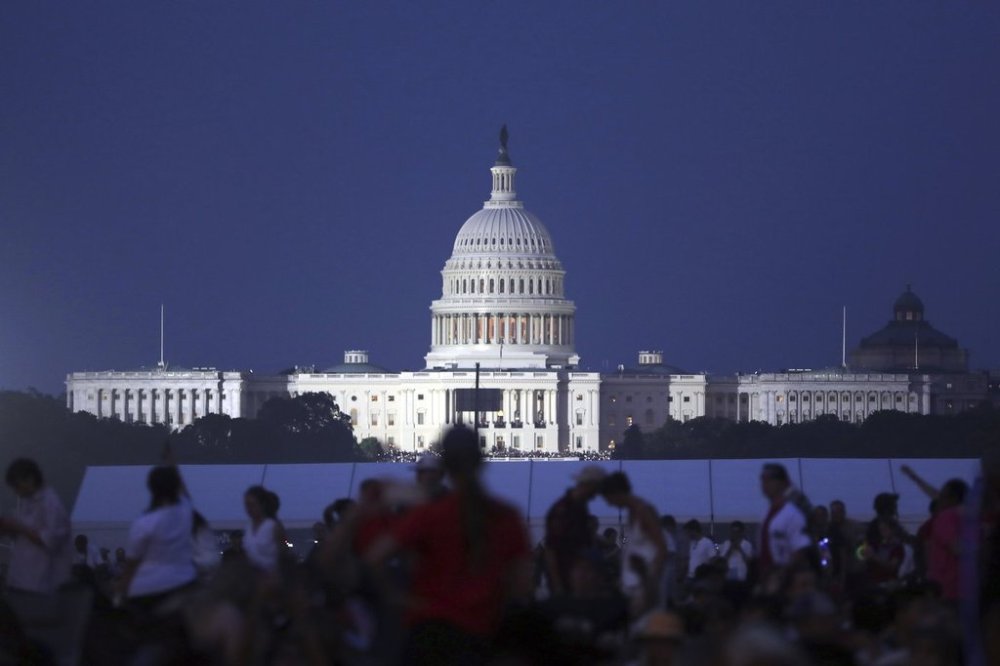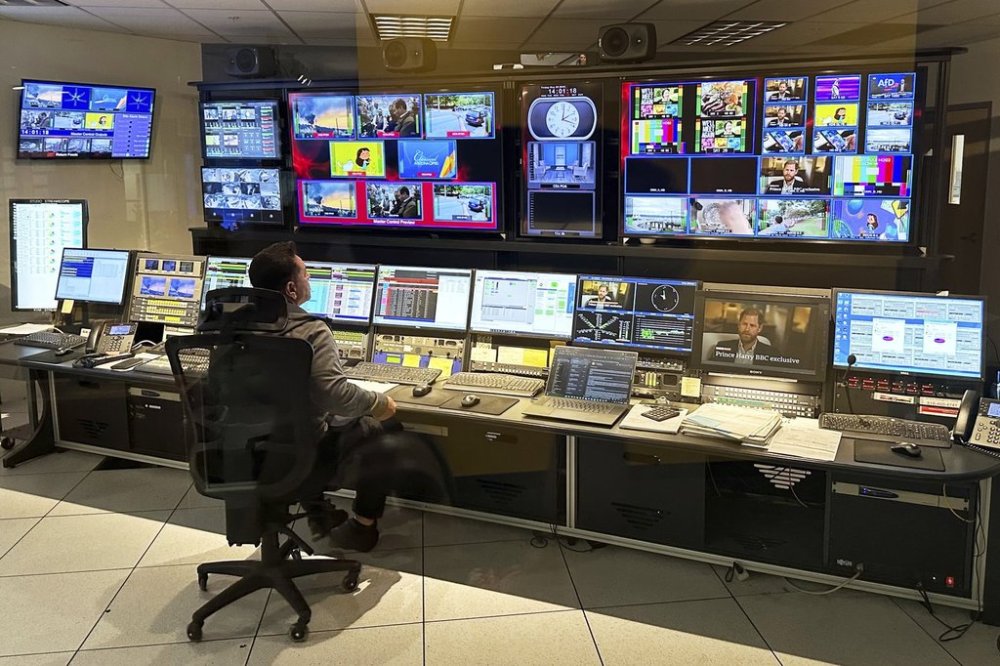Corporation for Public Broadcasting to shut down after being defunded by Congress, targeted by Trump
Advertisement
Read this article for free:
or
Already have an account? Log in here »
We need your support!
Local journalism needs your support!
As we navigate through unprecedented times, our journalists are working harder than ever to bring you the latest local updates to keep you safe and informed.
Now, more than ever, we need your support.
Starting at $15.99 plus taxes every four weeks you can access your Brandon Sun online and full access to all content as it appears on our website.
Subscribe Nowor call circulation directly at (204) 727-0527.
Your pledge helps to ensure we provide the news that matters most to your community!
To continue reading, please subscribe:
Add Brandon Sun access to your Free Press subscription for only an additional
$1 for the first 4 weeks*
*Your next subscription payment will increase by $1.00 and you will be charged $20.00 plus GST for four weeks. After four weeks, your payment will increase to $24.00 plus GST every four weeks.
Read unlimited articles for free today:
or
Already have an account? Log in here »
WASHINGTON (AP) — The Corporation for Public Broadcasting, a cornerstone of American culture for three generations, announced Friday it would take steps toward its own closure after being defunded by Congress — marking the end of a nearly six-decade era in which it fueled the production of renowned educational programming, cultural content and even emergency alerts.
The demise of the corporation, known as CPB, is a direct result of President Donald Trump’s targeting of public media, which he has repeatedly said is spreading political and cultural views antithetical to those the United States should be espousing. The closure is expected to have a profound impact on the journalistic and cultural landscape — in particular, public radio and TV stations in small communities across the United States.
CPB helps fund both PBS and NPR, but most of its funding is distributed to more than 1,500 local public radio and television stations around the country.

The corporation also has deep ties to much of the nation’s most familiar programming, from NPR’s “All Things Considered” to, historically, “Sesame Street,” “Mister Rogers’ Neighborhood” and the documentaries of Ken Burns.
The corporation said its end, 58 years after being signed into law by President Lyndon B. Johnson, would come in an “orderly wind-down.” In a statement, it said the decision came after the passage through Congress of a package that clawed back its funding for the next two budget years — about $1.1 billion. Then, the Senate Appropriations Committee reinforced that policy change Thursday by excluding funding for the corporation for the first time in more than 50 years as part of a broader spending bill.
“Despite the extraordinary efforts of millions of Americans who called, wrote, and petitioned Congress to preserve federal funding for CPB, we now face the difficult reality of closing our operations,” said Patricia Harrison, the corporation’s president and CEO.
A last-gasp attempt at funding fails
Democratic members of the Senate Appropriations Committee made a last-ditch effort this week to save the CBP’s funding.
As part of Thursday’s committee deliberations, Sen. Tammy Baldwin, D-Wis., authored but then withdrew an amendment to restore CPB funding for the coming budget year. She said she still believed there was a path forward “to fix this before there are devastating consequences for public radio and television stations across the country.”
“It’s hard to believe we’ve ended up in the situation we’re in,” she said. “And I’m going to continue to work with my colleagues to fix it.”
But Sen. Shelley Moore Capito, R-W.Va., sounded a less optimistic tone.
“I understand your concerns, but we all know we litigated this two weeks ago,” Capito said. “Adopting this amendment would have been contrary to what we have already voted on.”
CPB said it informed employees Friday that most staff positions will end with the fiscal year on Sept. 30. It said a small transition team will stay in place until January to finish any remaining work — including, it said, “ensuring continuity for music rights and royalties that remain essential to the public media system.”
“Public media has been one of the most trusted institutions in American life, providing educational opportunity, emergency alerts, civil discourse, and cultural connection to every corner of the country,” Harrison said. “We are deeply grateful to our partners across the system for their resilience, leadership, and unwavering dedication to serving the American people.”

The impact will be widespread
NPR stations use millions of dollars in federal money to pay music licensing fees. Now, many will have to renegotiate these deals. That could impact, in particular, outlets that build their programming around music discovery. NPR President and CEO Katherine Maher estimated recently, for example, that some 96% of all classical music broadcast in the United States is on public radio stations.
Federal money for public radio and television has traditionally been appropriated to the Corporation for Public Broadcasting, which distributes it to NPR and PBS. Roughly 70% of the money goes directly to the 330 PBS and 246 NPR stations across the country, although that’s only a shorthand way to describe its potential impact.
Trump, who has called the CPB a “monstrosity,” has long said that public broadcasting displays an extreme liberal bias, helped create the momentum in recent months for an anti-public broadcasting groundswell among his supporters in Congress and around the country. It is part of a larger initiative in which he has targeted institutions — particularly cultural ones — that produce content or espouse attitudes that he considers “un-American.” The CPB’s demise represents a political victory for those efforts.
His impact on the media landscape has been profound. He has also gone after U.S. government media that had independence charters, including the venerable Voice of America, ending that media outlet’s operations after many decades.
Trump also fired three members of the corporation’s board of directors in April. In legal action at the time, the fired directors said their dismissal was governmental overreach targeting an entity whose charter guarantees it independence.
___
